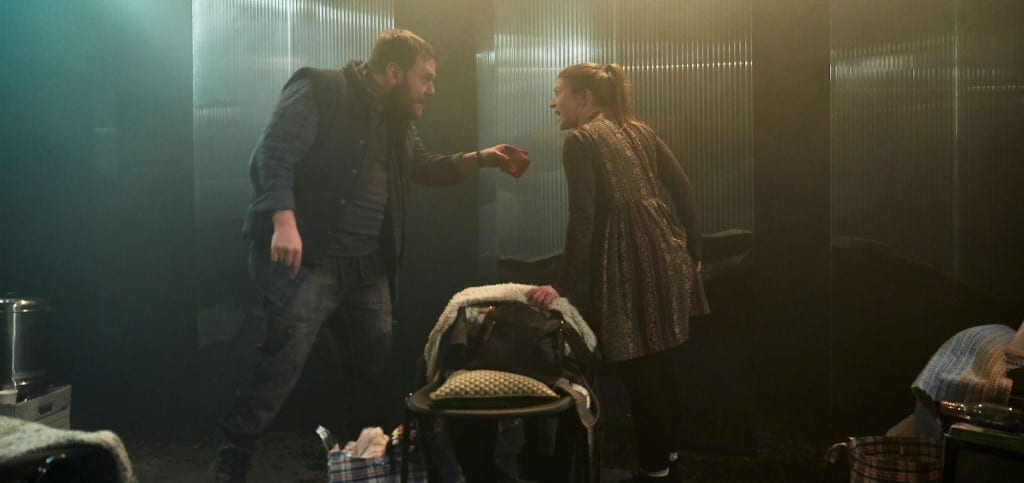Bronagh (Jill Mcausland) is a young woman caught in the house of her childhood with an abusive partner and a baby. The surrounding moor becomes the stage of a crime, while the lines between reality and dreams blur for the narrator of the story, Bronagh herself.
The props on stage are utterly naturalistic. They make it easy for the audience to imagine the poor home of a Scottish family in the middle of nowhere. Grim interior and faded out bags and blankets, in combination with dim lighting, give the impression of a house that is lived in, but not taken care of.
Though, the background on the other hand, gives the whole scenery a surrealist touch. Semi-see-through turning walls are painted with an abstract moor landscape, looking foggy and cold. They emphasise Bronagh as the main character, as the whole staging embodies her confusion with reality and dreams.
The lighting overall is used very well to change the setting without changing the staging or any props. Whether the audience witnesses a dream, the inside of the house or an interrogation at the police station, the lighting is enough to give a proper sense of scenery change.
A part that the story could improve on, would be the character building. All three characters are rather one dimensional – the audience does not get an idea of how they would act in situations that aren’t shown. We only ever see one-to one interactions, and these are always with the same person. Bronagh is the only exemption. We see her with her partner Graeme (Oliver Britten) and the police officer Pat (Jonny Magnanti). Though we get a better idea of her as a whole by seeing her change behaviour depending on who is with her, the other two characters lose out on their development. That is a shame as the acting of the cast is just amazing and utterly capturing. Oliver Britten creates a tense and uncomfortable atmosphere in his act as an abusive partner. The threatening flashing of his eyes and his bull-neck make it easy to empathise the fear Bronagh must be feeling.
While the story seems resolved at the end, the very last bit throws up old questions and leaves the audience wondering about what might be the explanation behind this strange series of events. However, that is not to the disadvantage of the play. It gives certain characters some of the credibility back that was lost as the story evolved. But before giving away too much: this is definitely a thriller worth seeing!

